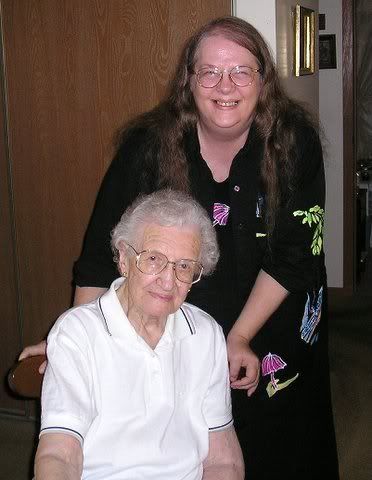Topic: u01d1 Cognitive Psychology
Subject: In response to u01d1 from Ann GarveyLast edited on: April 9, 2007 6:22 PM
Cognitive science mixes “cognitive psychology with aspects of philosophy, artificial intelligence, linguistics, neuroscience and cognitive anthropology” (Green, 1996, p. 31). Philosophy is the introspective study of people looking inward at their ideas and experiences, which help them, make sense of the world’s general nature (Sternberg, 2006, p.3). From the start there was a dualistic split between mental and physical properties of mind and body. Plato the rationalist believed the route to knowledge was “through logical analysis. In contrast, Aristotle (a naturalist and biologist as well as a philosopher) was an empiricist. An empiricist believes that we acquire knowledge via empirical evidence; that is, we obtain evidence through experience and observation” (p. 4).
Cognitive psychology brings forces full cycle, both mental and physical. Sternberg (2006, p. 3) explained cognitive research as a synthesis serving new thesis (mental idea) that is then followed by an antithesis (physical experiment), and then repeated. “The information processing approach advanced … in the late 1950s and early 1960s. There was a strong link between this work and that being done in linguistics by (the philosophically-informed) Chomsky (1957,1965), and in computer science by people like (the logically-informed) Newell and Simon (J956, 1963 as cited in Green, 1996, p. 37). Sperry (1993) “claimed that the current popularity of cognitive psychology represents a paradigmatic shift or revolution” (Hergenhahn, 1994, p. 817). This reverted attention back from physical to mental, and more directly, not to only the mind, but to the brain. Chomsky (Kotchoubey, 2005, p. 234) developed a hybrid model within the mind-brain called the language acquisition device (LAD) and the mental construct for the computers were considered they’re central processor units (CPU).
From its beginning in philosophy, psychology has covered roughly periods of structuralism, to functionalism, associationism, pragmatism, behaviorism, Gestaltism, and then to Cognitivism. Structuralism looked at the mind’s components by analyzing its perceptions (Sternberg, p. 5). Functionalism looked at “what people do, and why they do it” (p. 6). Pragmatists looked at what we did as to its usefulness. Through association we learn from the connection of events and ideas (p. 7). Behaviorism is the focus on behavior and “environmental events or stimuli” (p. 8). Through Gestalt we understood mental phenomena as “organized structured wholes” opposed to parts (p. 9), and cognition was related to the different processes of handling knowledge (p. 10).
Kant synthesized dialectically the point of view both mind and body work together toward truth (Sternberg, 2006, p. 5). Through cognitive psychology we’ve reached toward Kant’s central ground. “As interest in thinking, language, and memory began to rise among experimental psychologists - primarily under the influence of the work of artificial intelligence researchers, linguists, and philosophers (sec Green, 1994) - the technical meaning [of cognitive psychology] from outside psychology began to merge with the looser meaning employed by social psychologists” (Green, 1996, p. 32).
In considering mental processes we need to recognize that the mental portion is more subjective than the physical portion, and although it is the physical that grounds us, the mental shows us new ground. For example, Kendler (2002, pp. 56-57) considered cognitive work on “mental sets,” which was the “tendency to solve common problems in a habitual mode.” We learn and grow through the additions made to our mental sets. In kindergarten, I learned the term “idea bank;” in college we learned Freud’s word, “transference.” Because of different interpretations of these abstractions, we can’t say either of these mental sets is true or false; good or bad. I could say the slide is red; true. After a while of naming sets, we become more efficient, such as naming one of our fruits, orange. The situation is confused if we run into another party who uses instead the words la naranja, which is Spanish for orange. In learning the second term, we’ve broadened our scope, but we haven’t necessarily found a truth, though that can be directed through experimentation.
The philosophical portion, as stated by Kotchoubey (2005, p. 234) was an effort to conceptualize our ideas and experiences. Our mental constructs can sometimes be more distortive compared to physical objects that we can observe and consistently test. The things that we describe mentally take place linguistically and from there become either meaningful or not (p. 235). The elements that are physical can be tested in statements as to being true or false, so that if I were to question is it wood, we would say yes if it matched those certain properties. I wouldn’t be accurate in the same manner if I tried to test my idea bank. In a sense anything that we experience could be said to be only as real as our ability to describe it.
General to my thinking of psychology is “the promotion of human welfare” or quality of life. I think that on one hand psychology is able to help us understand principles and morality, but it would be dangerous to think that it has at this point the insight to define life for us. In the world, there are those who proscribe to war, can we say that all licensed psychologists are for it or against it? Is there a good side or bad? Do army psychiatrists give soldiers anti-depressants and send them back to battle?
Having empirical data does not always equate to having ethical judgments. For example, psychology describes mental health, by defining what is mentally ill and it calls this field “abnormal psychology.” I see the diagnosis of mental illness as being negative because our society doesn’t appear to value people who are “sick.” Charles Stevenson (1937, 1938a, 1938b, 1944), argued that moral exhortations are not just expressions of emotion, hut also direct attempts to influence the attitudes and behavior of others to be consonant with one's own inclinations. (Green, 1996, p. 33). Metaphors can be confusing, I hope the next 50 years is less so.
References
Green, C. D. (1996, February). Where did the word ‘cognitive’ come from anyway? Canadian Psychology, 37(1), 31-39. Retrieved April 9, 2007, from PsycARTICLES data base.
Hergenhahn, B. R. (1994, September). Psychology’s cognitive revolution. American Psychologist, 49(9), 816-817. Retrieved April 9, 2007, from PsycARTICLES data base.
Kendler, H. H. (2002). A personal encounter with psychology (1937-2002). History of Psychology, 5(1), 52-84. Retrieved April 9, 2007, from PsycARTICLES data base.
Kotchoubey, B. (2005). Neuroscience through the looking glass. Journal of Psychophysiology, 19(3), 234-237. Retrieved April 9, 2007 from PsycARTCLES database.
Sternberg, R. J. (2006). Cognitive psychology [4th ed.]. Belmont, CA: Thomson Wadsworth.
















